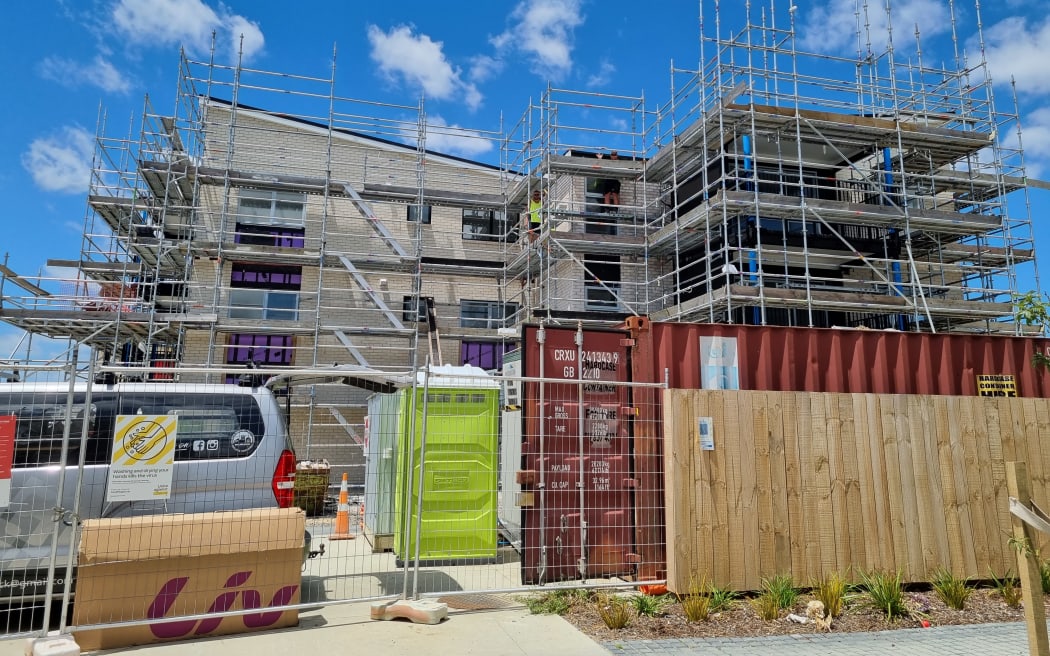
Photo: RNZ / Liu Chen
Nelson City Council has given the go-ahead to progress changes that will enable greater housing intensification in the city.
Elected members today voted unanimously to progress plan change 29 - to introduce new residential zones, allowing for varying levels of housing density.
It is hoped the change will address the housing crisis by making property more accessible and affordable.

Nelson Mayor Nick Smith. Photo: Supplied / Nelson City Council
Mayor Nick Smith said it was "as big a decision as councils get in determining their planning rules" and the changes would have an impact of billions of dollars in the city.
"What we do in our planning rules is going to have more effect on what the affordability of housing is going to be for future generations, than any other."
The proposed changes will now be publicly notified and open for submissions for the next five weeks.
The three zones under plan change 29 include; a general residential zone where up to three residential units with a height of two storeys will be permitted; a medium density residential zone with up to three units of up to three storeys; and a high density residential zone with up to three units of up to six storeys.
There would also be no minimum size for residential lots, but a 200sqm minimum size for vacant lot subdivision.
The proposed plan change also provides opportunity for papkāinga development by Māori and for Māori thereby enabling development on land where there are multiple owners.
Nelson's population has been growing at a faster rate than the national average. Between 2020 and 2051 it is predicted to grow by another 27 percent, with almost 12,000 more people and 6500 more households.
Smith said to cope with that growth, there needed to be a mix of urban intensification and greenfield development.
"It's about doing the hard yards to address our housing problems by making sure we can intensify, provide for greater diversity of housing, apartments, townhouses, and also smaller homes."
While the council unanimously agreed to progress the plan change, councillor Mel Courtney's concerns around intensification were many and varied, from the lack of parking and the strain on infrastructure to the loss of green spaces and heritage.
He said housing denisification was a blunt instrument when it came to addressing the complex housing crisis.
"The blanket approach of one size fits all intensification is a top down system in my view."
He made a plea for protections to be put in place, suggesting that neighbourhood citizen panels could be established to have their say on the developments that impacted them.
"I think we owe it to everyone to do the best we can for all our community and councils fundamentally, are about the wellbeing of their communities, so there needs to be a checks and balances around intensification."
Councillor Campbell Rollo, who is in his 20s, said the changes were exciting.
"In my lifetime I don't intend to leave Nelson and I would like to be able to afford a house and sadly at the moment that is a step too far for someone like me."
That sentiment was echoed by councillor James Hodgson, who said diverse housing choices were fundamental in ensuring Nelson remained a liveable city.
"I do find change really uncomfortable and I'm sure many people will find the proposed changes here quite uncomfortable, but what I find more uncomfortable are things like homelessness, things like losing our treasured green spaces and pricing my children out of our city, and watching our city centre decay."
Nelson Youth Councillor Finn Kerby-Pinguet said difficulty finding housing was among the reasons young people chose not to return to the region after university.
"Inability to find secure housing is a huge factor that is driving people away from Nelson and if we want a dynamic city, a city for all ages, I think it is important to consider that the status quo, without plan change 29, is actively driving young people away from Nelson."
Councillor Aaron Stallard said intensification was not without challenges, but had benefits like shared infrastructure, reduced transport needs and emissions.
"We should also cast our eye over the cost of inaction, the cost of continuing as we are, with housing unaffordability, negative environmental effects of sprawl, increased traffic, congestion and emissions and a further delay, possibly by decades, of rejuvenating our city centre."
Public consultation opens on 11 August and Nelsonians have until 19 September to share their views on the proposed changes.


